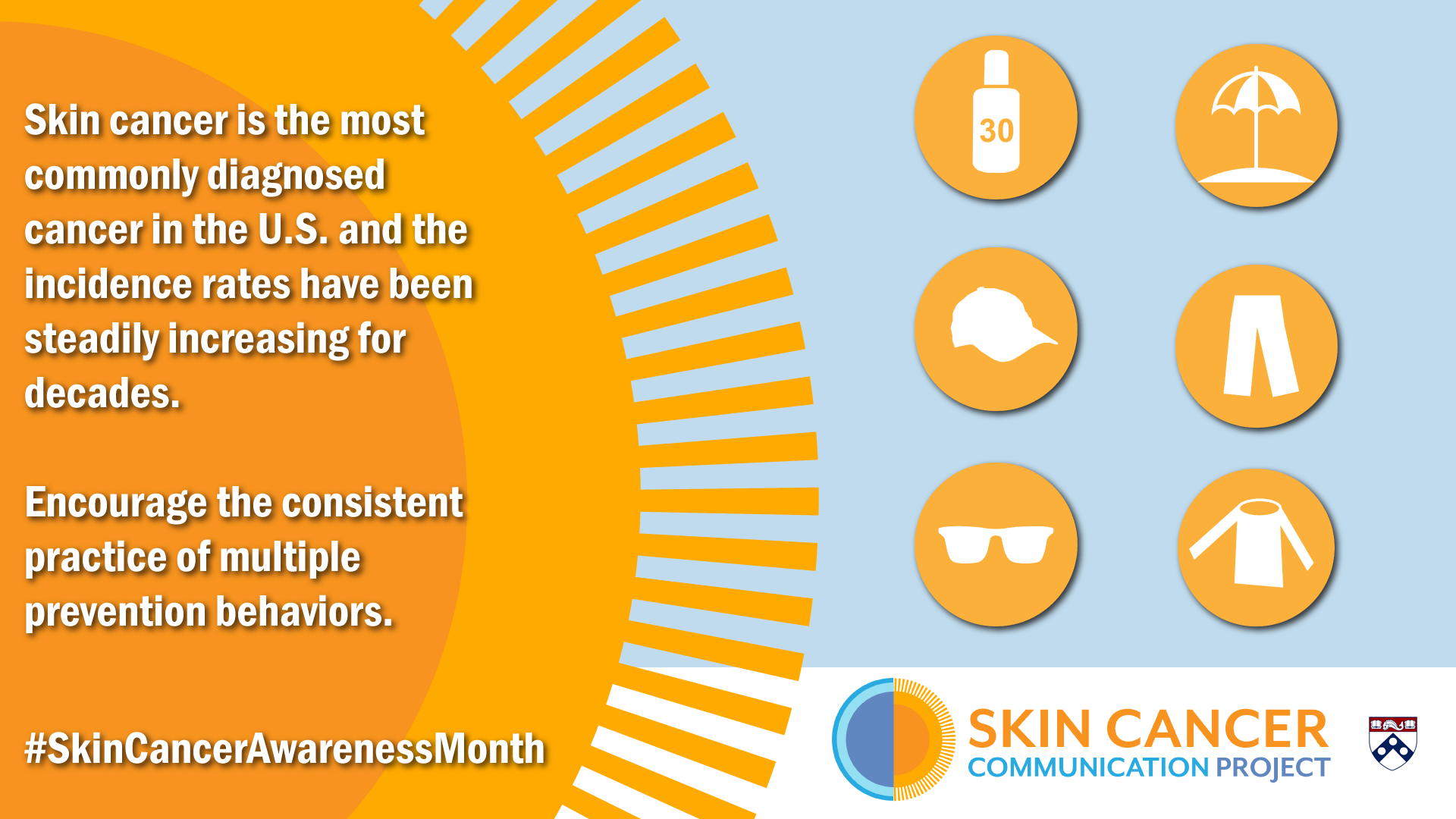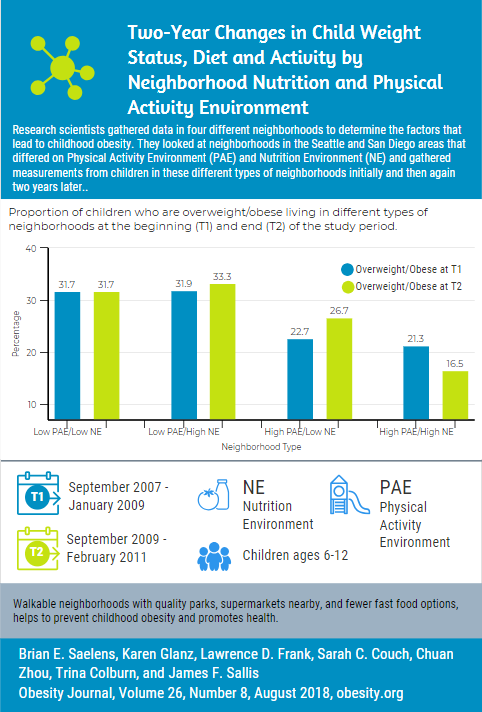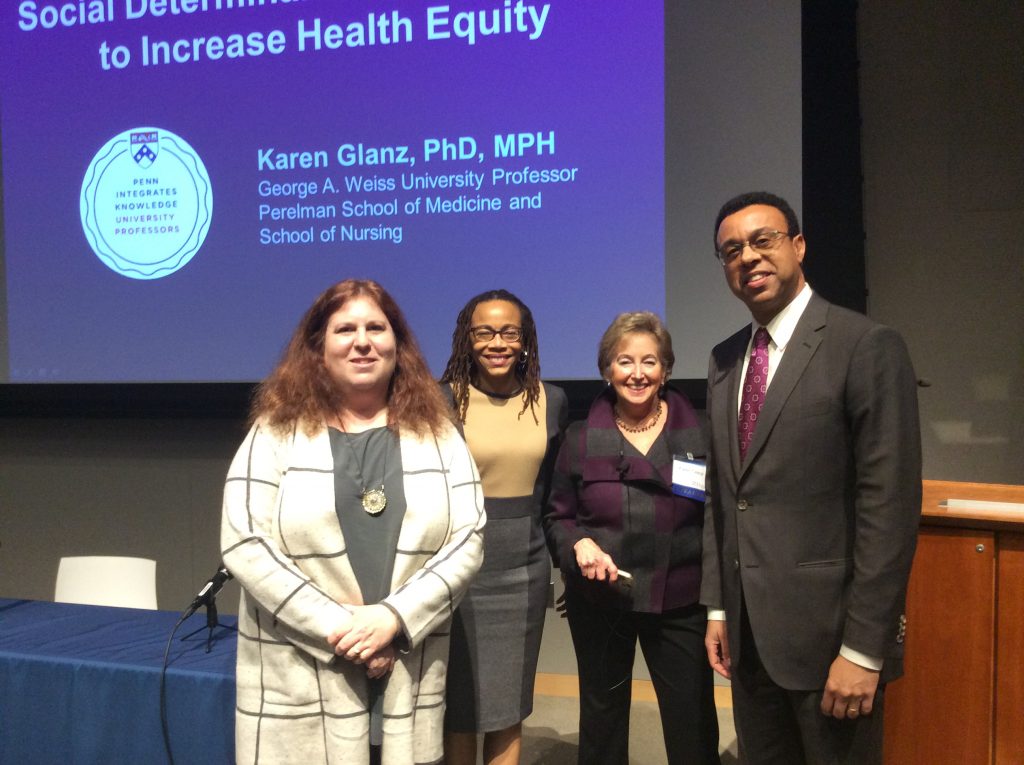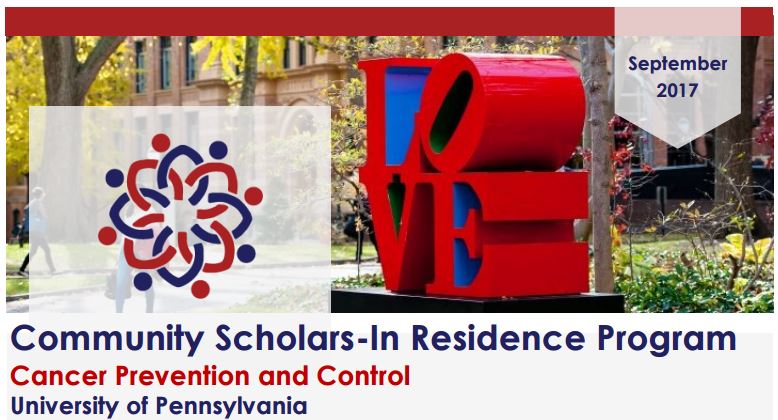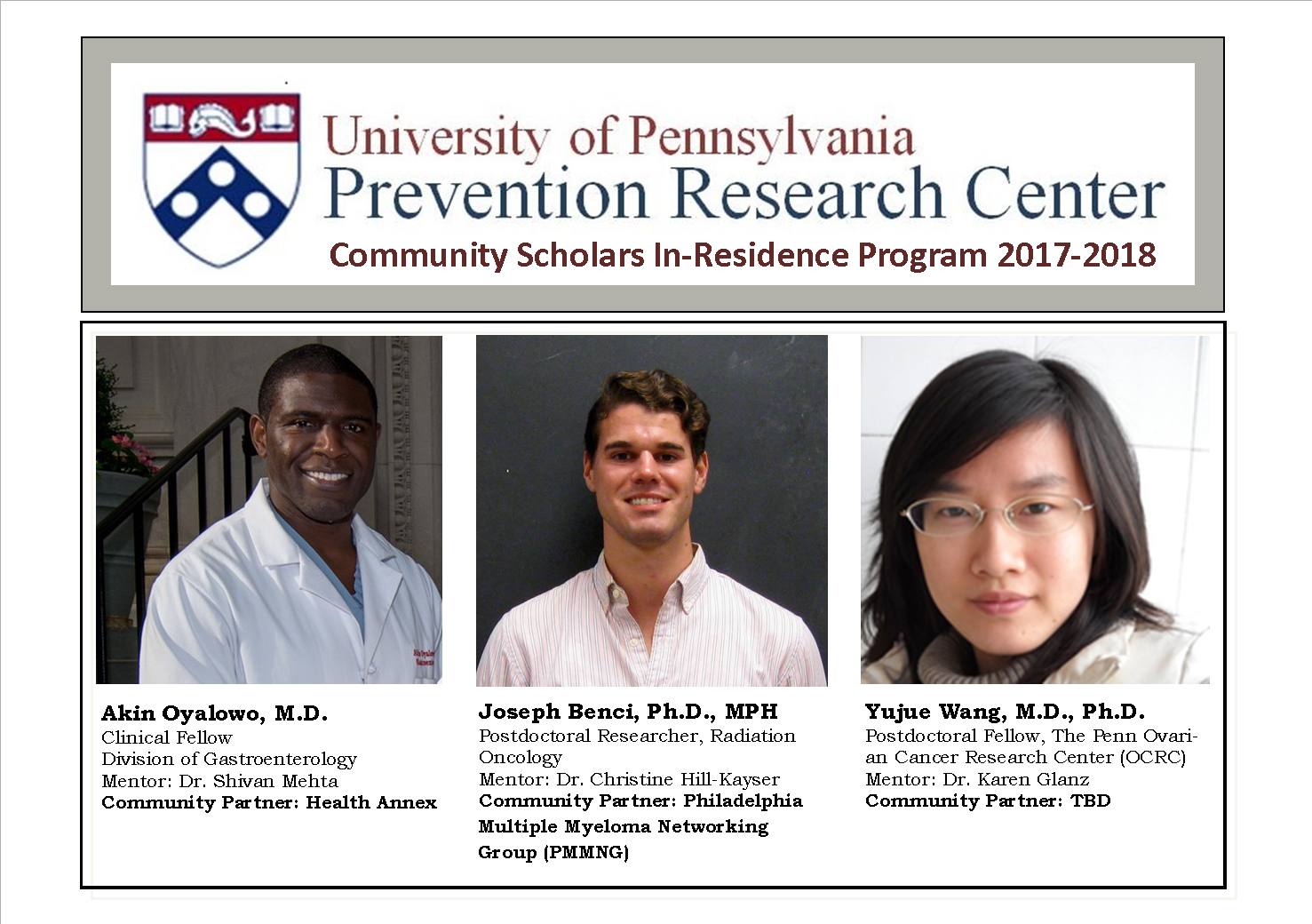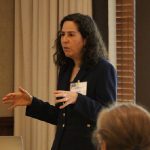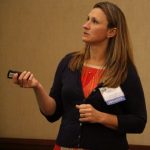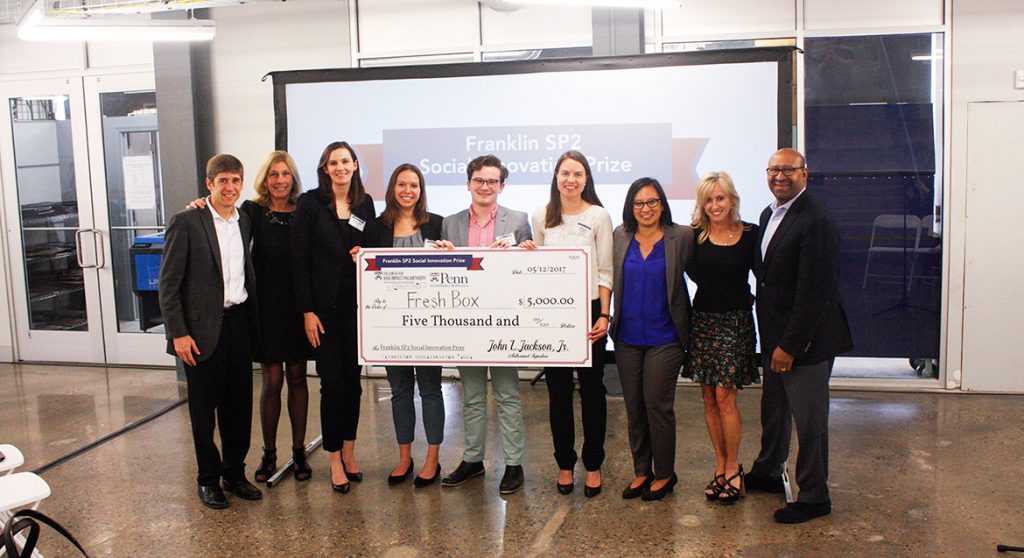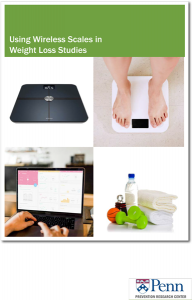The Issue
There is a global childhood obesity epidemic and researchers in the United States are working toward solutions, including prevention. Compared to adults, there has been relatively little research linking a child’s environment to their weight. This report was published in The Obesity Journal on August 23,2018. It is a continuation of findings from the Neighborhood Impact on Kids (NIK) study, and focuses on both physical activity and nutrition environments. Two factors that can affect a child’s weight, in addition to behavioral factors, like daily energy intake and sedentary behavior.
The Study
A team of researchers gathered data twice over a two year span, in four types of different metropolitan neighborhoods in two large cities. They looked at several factors, like the age of the parents and the proximity of a quality park, then compared these data for each child to the child’s BMI. A favorable neighborhood in the study had a supermarket nearby with good nutrition and a quality park within walking distance of the child’s home. Less favorable neighborhoods had fast food easily accessible, no supermarkets nearby and nowhere for the children to play within a 1/2 mile. The findings looked at whether the neighborhood characteristics predicted the children outcomes going forward over the two years of the study.
As a result, the study showed that children living in less favorable neighborhoods were 41% to 49% more likely to be overweight, and that these effects were found across two years. City planners and developers can use this evidence when designing neighborhoods that support healthy families.
The Importance of Environments
Karen Glanz, PhD, MPH, a co-author on the study, noted “This study is unique and important in that it allowed us to make clear comparisons between ‘healthier’ and ‘less healthy’ food and activity environments over multiple years. The findings underscore how important environments can be in shaping behaviors and the health of children.”
Neighborhoods Impact on Kids (NIK) is an observational study, evaluating cross-sectional and longitudinal associations of neighborhood-level activity and nutrition environments with children’s weight status and obesity. The study is led by Dr. Brian Saelens, currently at Seattle Children’s Hospital.




